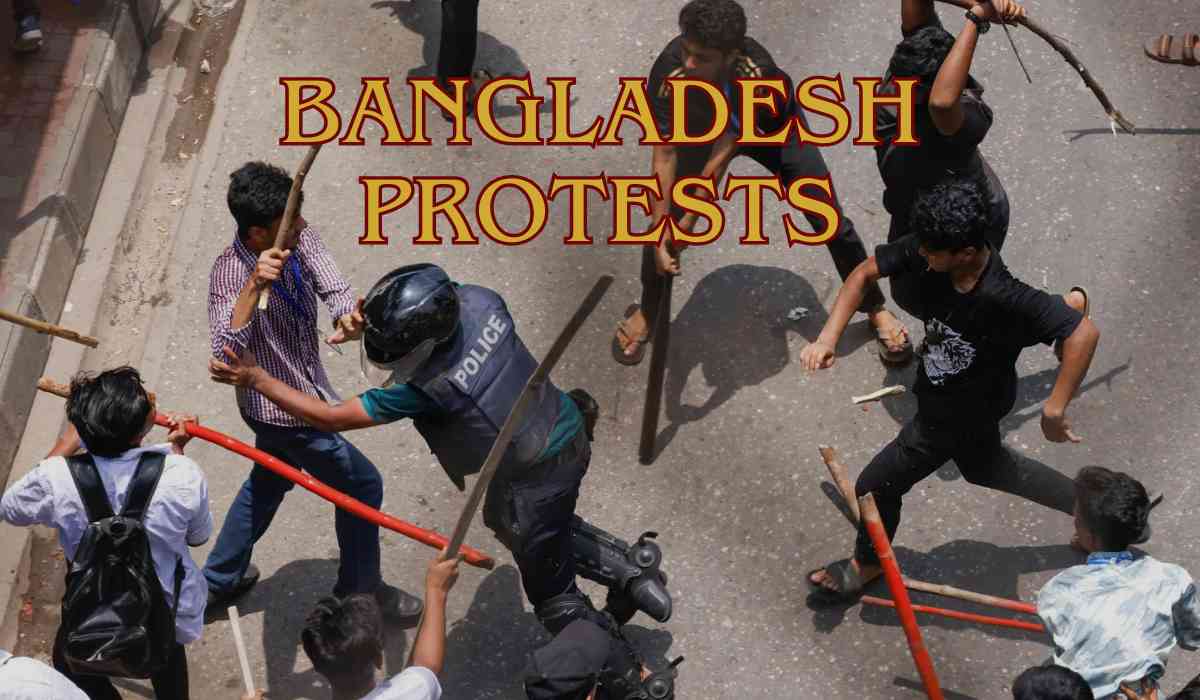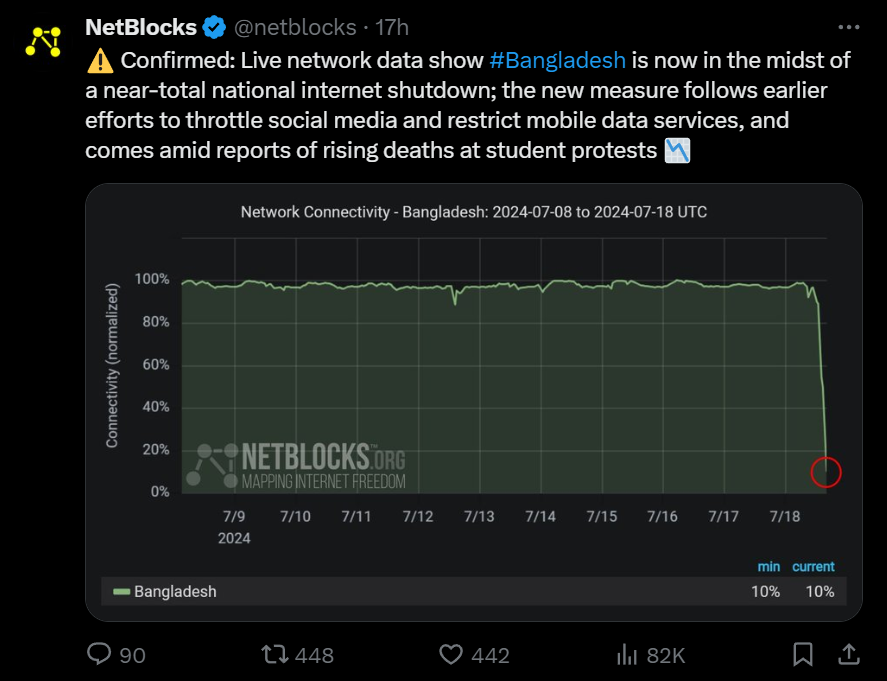Violent student protests continue to rock Bangladesh for the second consecutive day, as demonstrations against the government job quota system intensify. The situation remains volatile, with widespread disruptions to telecommunications and a rising death toll. The unrest has spread beyond the capital, Dhaka, to other major cities, causing concern among international observers.
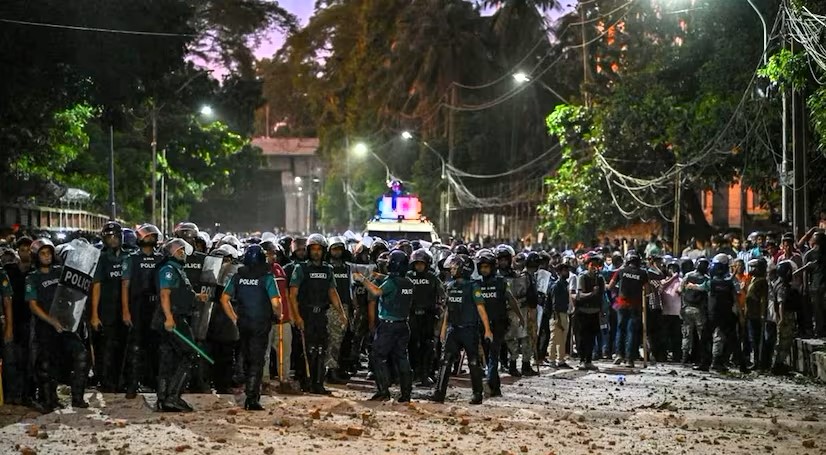
♦ Television News Channels Off Air: Major news channels, including the state broadcaster BTV, are currently off the air.
♦ Widespread Mobile and Internet Disruptions: Mobile and internet services are widely disrupted, with only some voice calls working and no access to mobile data or broadband.
♦ Social Media Platforms Inaccessible: Platforms such as Facebook and WhatsApp are down.
♦ Overseas Calls Unconnected: Telephone calls from overseas are mostly unable to connect.
♦ Newspaper Websites and Social Media Inactive: Many newspaper websites are not updating, and their social media handles remain inactive.
♦ Technical Difficulties: Some channels display messages citing technical difficulties and promise a return to normal programming soon.
The communications shutdown seems to be a government attempt to quell the unrest but has also hampered the flow of information and emergency services.
For more on the Dhaka quota protest, read: Bangladesh Quota System Protests: Deaths, Internet Shutdowns, And Government Response
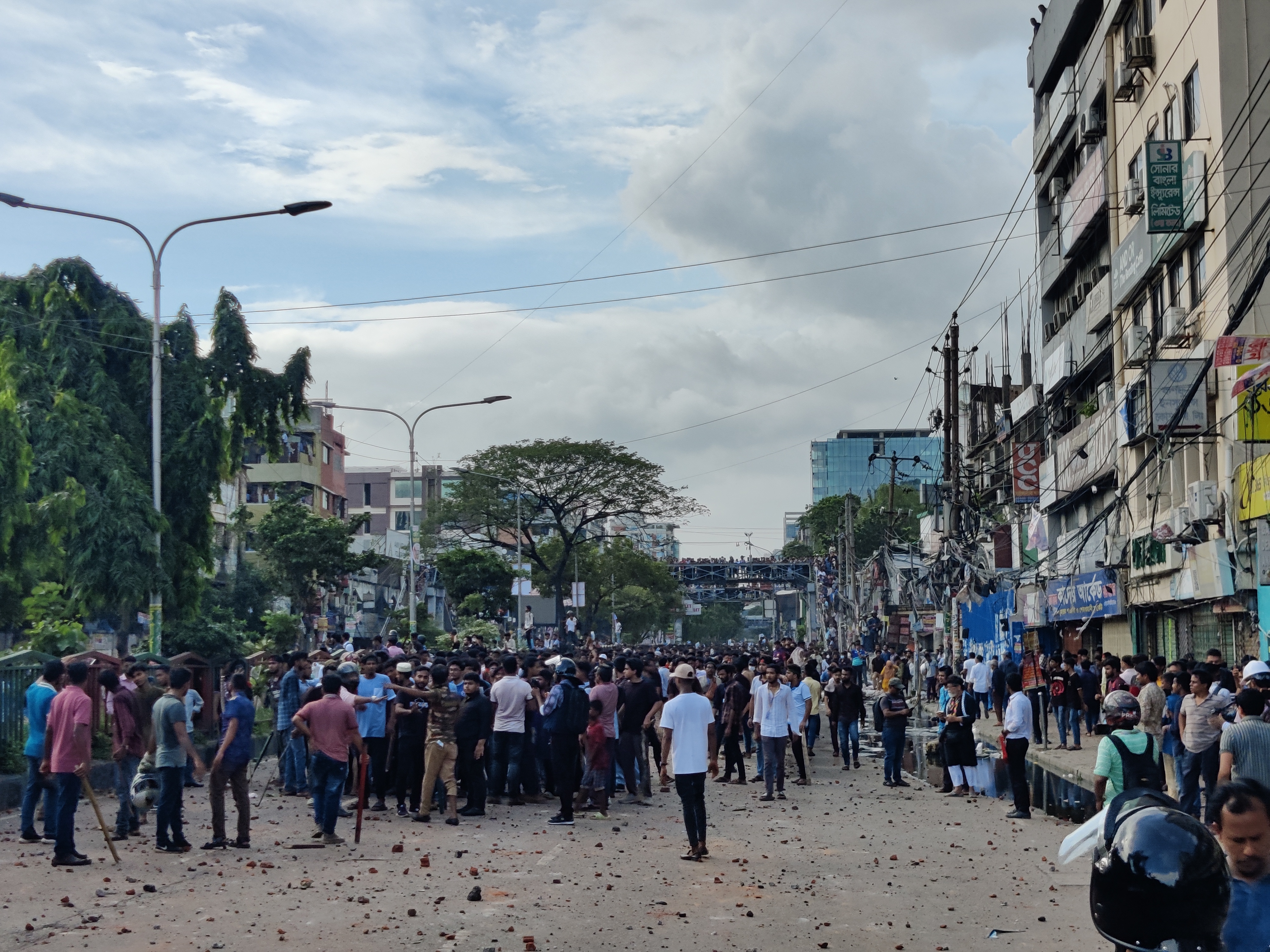
The French news agency AFP reports that the death toll from Thursday's violence has risen to 32, though this figure has not been independently verified. Reuters previously reported 19 deaths. Clashes have been reported in nearly half of the country's 64 districts, with over 1,000 people injured.
♦ Majority of Deaths in Dhaka: Most fatalities are reported in the capital.
♦ Fatalities in Narayanganj and Chittagong: Deaths have also occurred in these major cities.
♦ Expected Increase in Death Toll: The number of fatalities is expected to rise as violence continues.
♦ Hospitals Overwhelmed: Hospitals are struggling to cope with the influx of injured protesters.
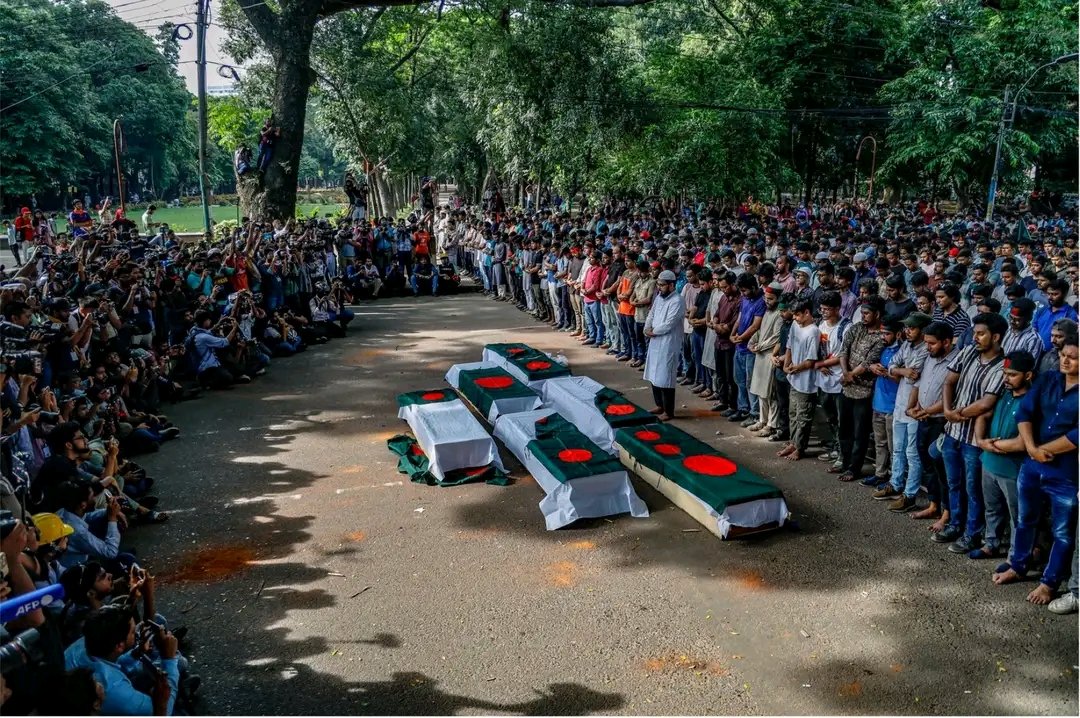
♦ Army Deployed: The government called in the army late Thursday to maintain order.
♦ Public Rallies Banned: A ban on public rallies in Dhaka was announced by Police Commissioner Habibur Rahman.
♦ Police Warning: Authorities warn of the 'maximum use of law' if the destruction continues.
♦ Increased Security: Government buildings and police posts are under heightened security.
♦ Government's Biggest Challenge: Prime Minister Sheikh Hasina's government is facing its most significant challenge since re-election.
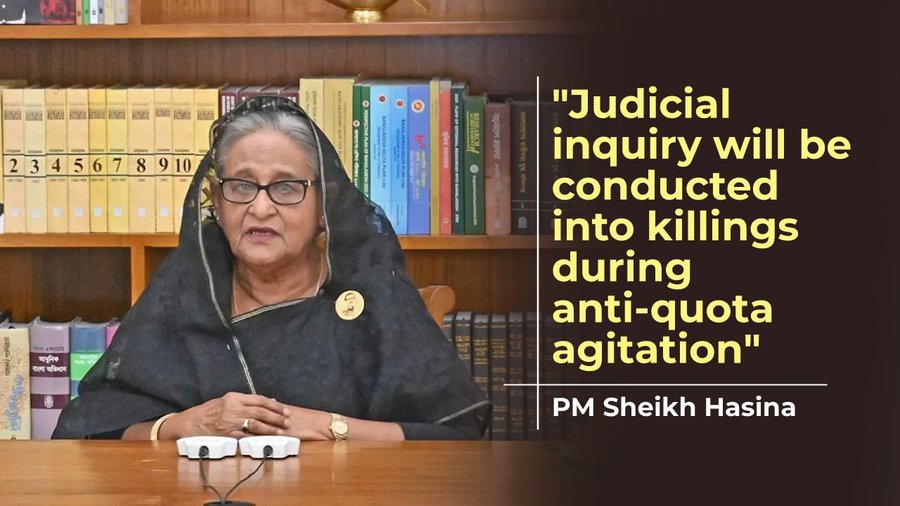
Students are calling for an end to the 30% quota system for government jobs, which reserves positions for:
- Families of independence war veterans
- Women
- Disabled people
- Ethnic minorities
This system leaves only about 3,000 positions for which 400,000 graduates compete in the civil services exam. Protesters argue that the system is unfair and outdated, demanding a merit-based approach instead.
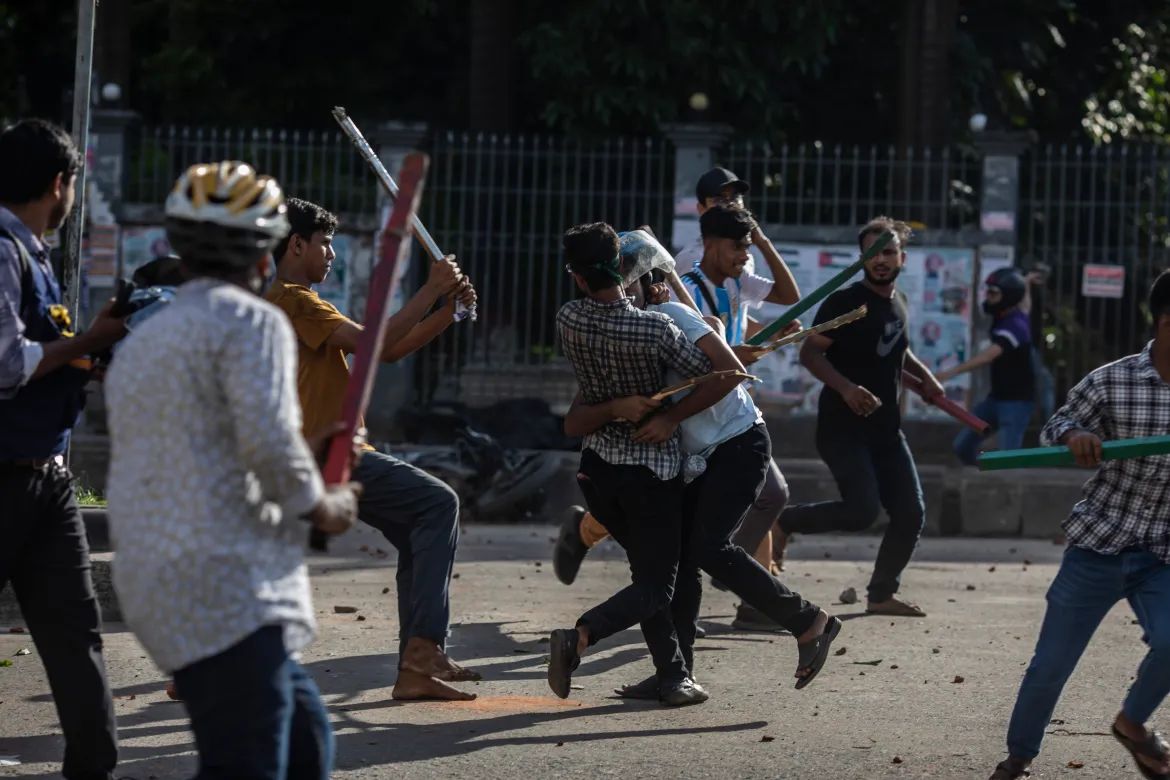
♦ Government Buildings Torched: Buildings, including the state broadcaster's headquarters, have been set on fire.
♦ Clashes intensify: Violent clashes continue between protesters, police, and pro-government activists.
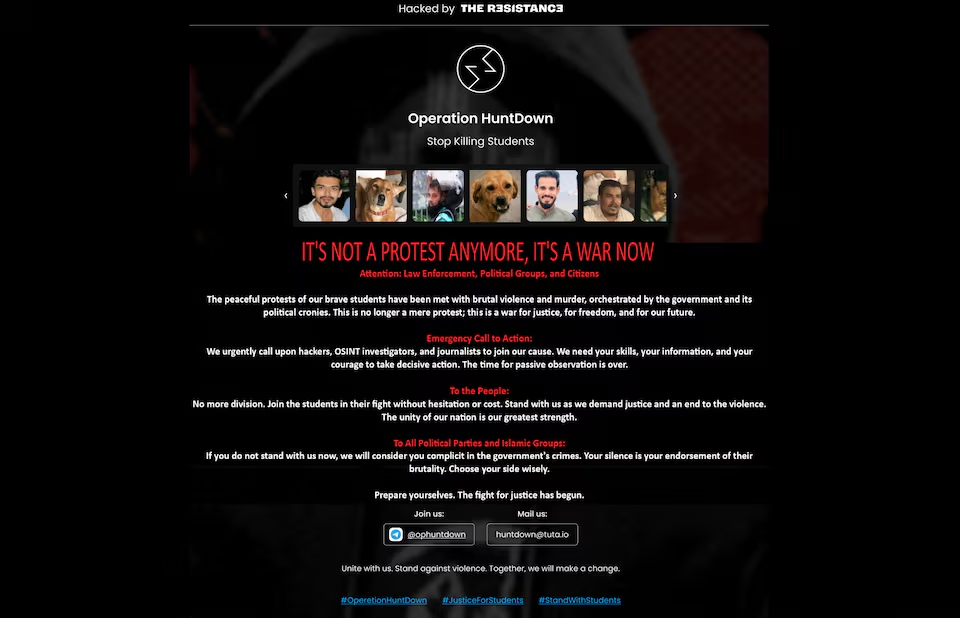
♦ University Shutdowns: All public and private universities, including Dhaka University, have been shut down indefinitely.
♦ Vehicles Set on Fire: Protesters have set fire to police and other vehicles.
♦ Police Response: Authorities have used tear gas and rubber bullets to disperse crowds.
♦ Protesters' Tactics: Demonstrators are using makeshift weapons and setting up barricades.
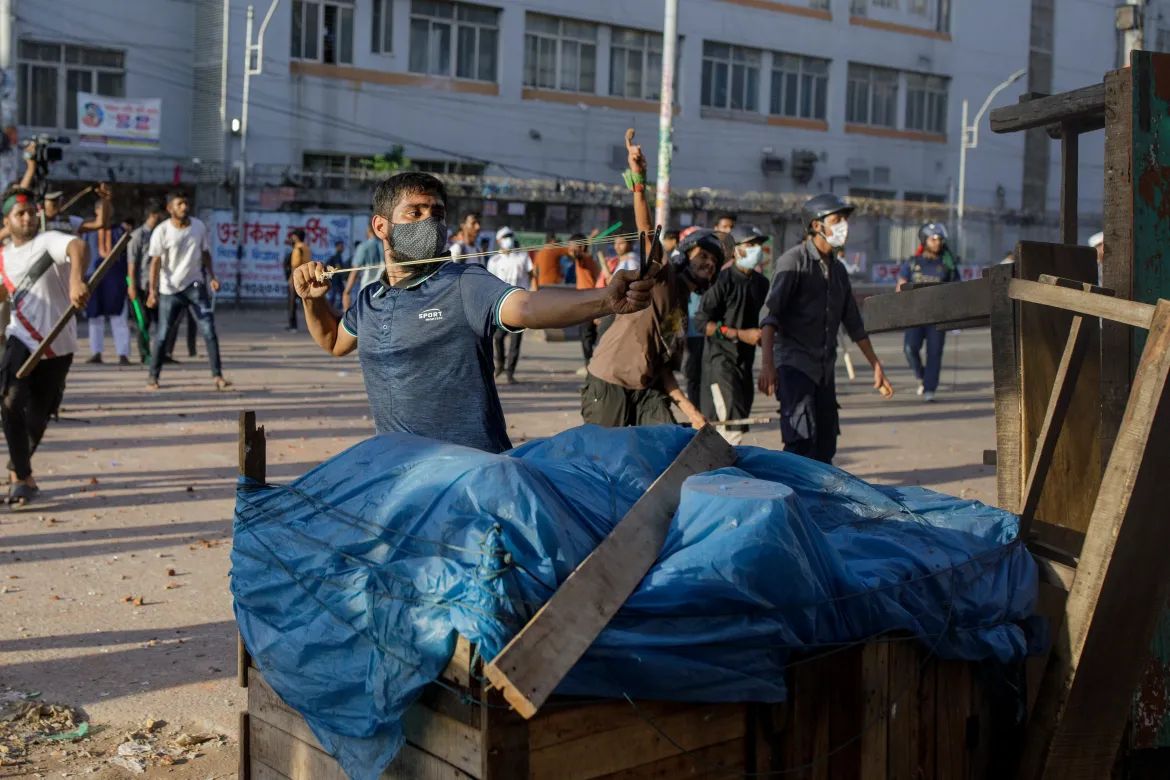
Analysts suggest that tough economic conditions are fueling the protests, including:
• High Inflation: Increasing costs of living are straining household budgets.
• Rising Unemployment: Particularly high among youth, contributing to widespread discontent.
• Depleting Foreign Reserves: Affecting the country's economic stability.
• Impact of Russia-Ukraine War: The conflict has had ripple effects on Bangladesh's economy.
• Recent IMF Bailout: Bangladesh secured a $4.7 billion bailout from the International Monetary Fund in January 2023, highlighting the country's economic challenges.
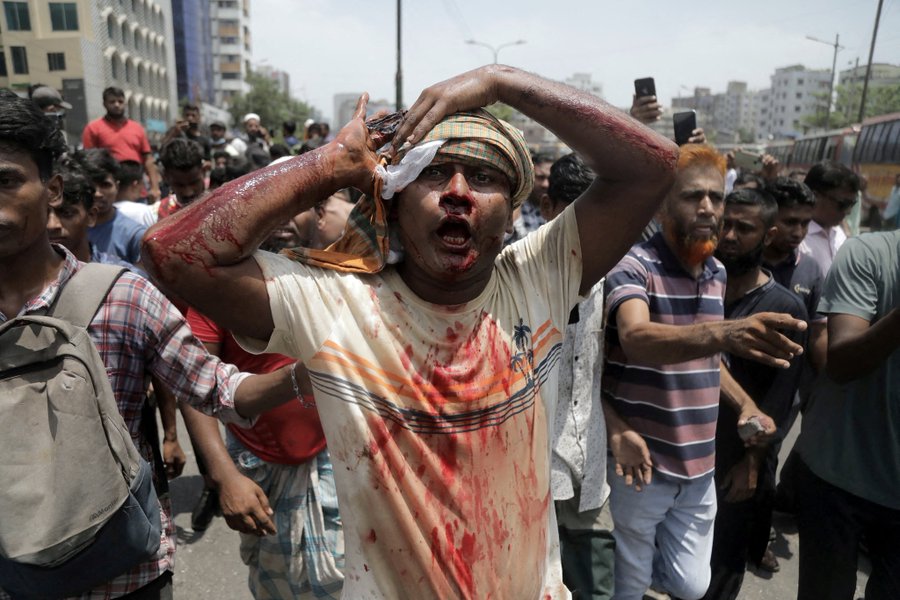
The government has expressed willingness to hold talks with protesters, but demonstrators are demanding justice for police actions before considering negotiations. The law minister announced that Prime Minister Hasina has instructed him to seek a compromise.
→ Nationwide Shutdown: Students have called for a nationwide shutdown.
→ Funeral Prayers: Mosques across the country are urged to hold funeral prayers for the victims of the protests.
→ International Monitoring: The international community is closely watching the situation.
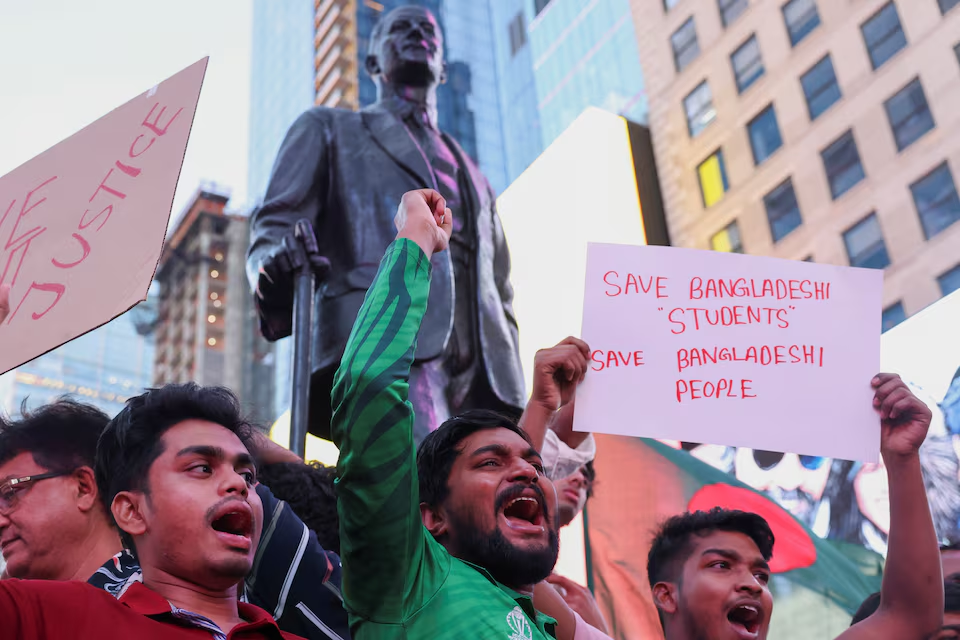
→ Concerns for Stability: There are growing concerns about the long-term economic and political stability of Bangladesh.
→ Government's Crisis Management: The handling of the crisis by the government is under scrutiny.
As the situation remains tense, fears of further escalation loom if a resolution is not reached soon. The coming days will be crucial in determining the direction of this movement and its impact on Bangladesh's political landscape.
Inputs by Agencies
Image Source: Multiple Agencies
Ⓒ Copyright 2024. All Rights Reserved Powered by Vygr Media.

